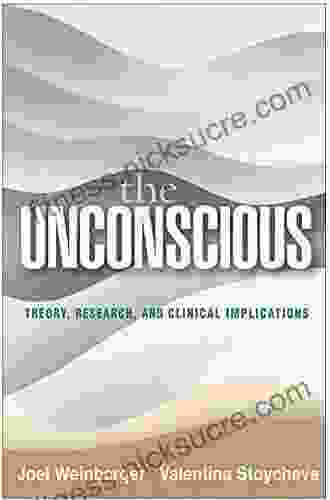Theory, Research, and Clinical Implications: Psychoanalysis and Psychological Science

Psychoanalysis and psychological science have a long and complex relationship. On the one hand, psychoanalysis has been criticized for being unscientific and lacking in empirical evidence. On the other hand, psychoanalysis has made significant contributions to our understanding of the human mind and has been used successfully to treat a wide range of mental disorders.
4.9 out of 5
| Language | : | English |
| File size | : | 1222 KB |
| Text-to-Speech | : | Enabled |
| Screen Reader | : | Supported |
| Enhanced typesetting | : | Enabled |
| Word Wise | : | Enabled |
| Print length | : | 396 pages |
In recent years, there has been a growing interest in integrating psychoanalysis and psychological science. This article provides an overview of the history, theory, research, and clinical implications of psychoanalysis and psychological science. It also discusses the challenges and opportunities for integrating these two fields.
History of Psychoanalysis
Psychoanalysis was developed by Sigmund Freud in the late 19th century. Freud was a neurologist who was interested in understanding the causes of mental illness. He developed a theory of the unconscious mind, which he believed was the source of many psychological problems.
Freud's theory of psychoanalysis is based on the idea that the unconscious mind is a repository of thoughts, feelings, and memories that are not accessible to conscious awareness. These unconscious thoughts and feelings can influence our behavior and emotions in ways that we are not aware of.
Freud developed a number of techniques to help patients access their unconscious minds, including free association, dream analysis, and transference. Free association is a technique in which patients are encouraged to say whatever comes to mind, without censorship. Dream analysis is a technique in which patients are asked to discuss their dreams, which Freud believed were a window into the unconscious mind. Transference is a technique in which patients transfer their feelings about other people onto the therapist.
Theory of Psychoanalysis
Freud's theory of psychoanalysis is based on a number of key concepts, including:
* The unconscious mind: The unconscious mind is a repository of thoughts, feelings, and memories that are not accessible to conscious awareness. * The id: The id is the part of the mind that contains our basic instincts and desires. * The ego: The ego is the part of the mind that mediates between the id and the superego. * The superego: The superego is the part of the mind that contains our moral values and ideals.
Freud believed that the id, ego, and superego are in constant conflict with each other. This conflict can lead to a variety of psychological problems, including anxiety, depression, and obsessive-compulsive disorder.
Research on Psychoanalysis
There has been a great deal of research on psychoanalysis over the years. Some studies have supported Freud's theory of the unconscious mind, while other studies have not. Overall, the research on psychoanalysis is mixed.
One of the most famous studies on psychoanalysis was conducted by Hans Eysenck in the 1950s. Eysenck compared the effectiveness of psychoanalysis to other forms of therapy, such as behavior therapy and cognitive-behavioral therapy. He found that psychoanalysis was no more effective than other forms of therapy.
However, other studies have found that psychoanalysis can be effective in treating certain mental disorders, such as anxiety disorders and depression. For example, a study published in the journal JAMA Psychiatry in 2017 found that psychoanalysis was more effective than medication in treating anxiety disorders.
Clinical Implications of Psychoanalysis
Psychoanalysis is a complex and time-consuming therapy. It typically involves weekly sessions for several months or even years. However, psychoanalysis can be an effective treatment for a wide range of mental disorders, including:
* Anxiety disorders * Depression * Obsessive-compulsive disorder * Post-traumatic stress disorder * Personality disorders
Psychoanalysis can help patients to understand their unconscious thoughts and feelings, and to develop more effective coping mechanisms. It can also help patients to improve their relationships with others and to live more fulfilling lives.
Challenges and Opportunities for Integrating Psychoanalysis and Psychological Science
There are a number of challenges to integrating psychoanalysis and psychological science. One challenge is the fact that psychoanalysis is a qualitative therapy, while psychological science is typically quantitative. This means that it is difficult to compare the results of psychoanalysis studies to the results of psychological science studies.
Another challenge is the fact that psychoanalysis is a long-term therapy, while psychological science studies typically involve shorter-term interventions. This makes it difficult to compare the effectiveness of psychoanalysis to the effectiveness of other forms of therapy.
Despite these challenges, there are a number of opportunities for integrating psychoanalysis and psychological science. One opportunity is to use psychological science methods to study psychoanalysis. This can help to provide more empirical evidence for the effectiveness of psychoanalysis.
Another opportunity is to develop new forms of therapy that integrate psychoanalysis and psychological science. These new forms of therapy could be more effective than traditional psychoanalysis or psychological science interventions.
Psychoanalysis and psychological science have a long and complex relationship. There are a number of challenges to integrating these two fields, but there are also a number of opportunities. By working together, psychoanalysis and psychological science can help us to better understand the human mind and to develop more effective treatments for mental disorders.
4.9 out of 5
| Language | : | English |
| File size | : | 1222 KB |
| Text-to-Speech | : | Enabled |
| Screen Reader | : | Supported |
| Enhanced typesetting | : | Enabled |
| Word Wise | : | Enabled |
| Print length | : | 396 pages |
Do you want to contribute by writing guest posts on this blog?
Please contact us and send us a resume of previous articles that you have written.
 Fiction
Fiction Non Fiction
Non Fiction Romance
Romance Mystery
Mystery Thriller
Thriller SciFi
SciFi Fantasy
Fantasy Horror
Horror Biography
Biography Selfhelp
Selfhelp Business
Business History
History Classics
Classics Poetry
Poetry Childrens
Childrens Young Adult
Young Adult Educational
Educational Cooking
Cooking Travel
Travel Lifestyle
Lifestyle Spirituality
Spirituality Health
Health Fitness
Fitness Technology
Technology Science
Science Arts
Arts Crafts
Crafts DIY
DIY Gardening
Gardening Petcare
Petcare Joseph Henrich
Joseph Henrich Keisuke Andrew
Keisuke Andrew William G Tapply
William G Tapply Daniel Foor Phd
Daniel Foor Phd Jay Greenberg
Jay Greenberg Wade Davis
Wade Davis Alice Kuipers
Alice Kuipers Elizabeth Clare Prophet
Elizabeth Clare Prophet Samantha Cattach
Samantha Cattach Damon Centola
Damon Centola Heather Baker
Heather Baker Nick Littlehales
Nick Littlehales Melia Keeton Digby
Melia Keeton Digby Ali Novak
Ali Novak Martha Shirk
Martha Shirk Ernie Palladino
Ernie Palladino Alexandra Fuller
Alexandra Fuller Brian D Ambrosio
Brian D Ambrosio Penny Armstrong
Penny Armstrong Susan Jules
Susan Jules Melissa Falkowski
Melissa Falkowski C S Johnson
C S Johnson Nel Noddings
Nel Noddings Rachel Vitale
Rachel Vitale Patrick Torsell
Patrick Torsell Michele Filgate
Michele Filgate John Lohn
John Lohn Ron Ritchhart
Ron Ritchhart Craig S Brantley
Craig S Brantley Thomas F King
Thomas F King Daniel Young
Daniel Young Nancy Carpentier Brown
Nancy Carpentier Brown Kirstin Cronn Mills
Kirstin Cronn Mills Tom Mackie
Tom Mackie Whitney Miller
Whitney Miller Robert Scott
Robert Scott Jenna Ortega
Jenna Ortega Vicki Manning
Vicki Manning Shannon Messenger
Shannon Messenger Louis Borgenicht
Louis Borgenicht Tracy Becker
Tracy Becker Alice Steinbach
Alice Steinbach Pottermore Publishing
Pottermore Publishing Alice Horton
Alice Horton Dan Jenkins
Dan Jenkins Scott Weems
Scott Weems David R Hawkins
David R Hawkins Andrew Yueh
Andrew Yueh Dylan Farrow
Dylan Farrow Bjorn Kjellstrom
Bjorn Kjellstrom Stephanie Mitchell Cnm Msn Dnp
Stephanie Mitchell Cnm Msn Dnp Devyn Stone
Devyn Stone Raymond Barrett
Raymond Barrett Dean Pohlman
Dean Pohlman Alice Miller
Alice Miller Jay Golden
Jay Golden Jeff Sambur
Jeff Sambur Alfred Begum
Alfred Begum Robert Zimmerman
Robert Zimmerman Udo Schaefer
Udo Schaefer Tracy Anderson
Tracy Anderson Rob Price
Rob Price Nic Sheff
Nic Sheff Tasha Alexander
Tasha Alexander Matthew Dektas
Matthew Dektas Peter D Rogers
Peter D Rogers Anders Morley
Anders Morley Allison Saft
Allison Saft Dustin Vaughn Warncke
Dustin Vaughn Warncke Richard Preston
Richard Preston John F Gilbey
John F Gilbey G Pascal Zachary
G Pascal Zachary Aris Spanos
Aris Spanos Charles Hainsworth
Charles Hainsworth Doc Norton
Doc Norton Stacey L Bradford
Stacey L Bradford Alice Scordato
Alice Scordato Sacha Black
Sacha Black Michael Thorp
Michael Thorp Kathryn A Bard
Kathryn A Bard Chase Kosterlitz
Chase Kosterlitz Stephen Ilg
Stephen Ilg Eric Mantle
Eric Mantle Stacy Tornio
Stacy Tornio Valora Conciencia En Los Medios
Valora Conciencia En Los Medios Bayo Akomolafe
Bayo Akomolafe Mark C Purcell
Mark C Purcell Gary Wayne
Gary Wayne Jonathan Carroll
Jonathan Carroll Joel Weinberger
Joel Weinberger Robert A Monroe
Robert A Monroe Dagny Scott Barrios
Dagny Scott Barrios Stephen Blyth
Stephen Blyth Henry Gilbert
Henry Gilbert Alfred Tarski
Alfred Tarski German Raigosa
German Raigosa David Wolman
David Wolman Ellen Kane
Ellen Kane Jeremy Hance
Jeremy Hance Minda Harts
Minda Harts John Bemelmans Marciano
John Bemelmans Marciano Aram Attarian
Aram Attarian Zac Unger
Zac Unger Alice Borchardt
Alice Borchardt John Abramson
John Abramson Deborah Layton
Deborah Layton Sir E A Wallis Budge
Sir E A Wallis Budge Alice Cooper
Alice Cooper Neil Schulenburg
Neil Schulenburg Alfred North Whitehead
Alfred North Whitehead Ali Katz
Ali Katz Wendy Currie
Wendy Currie Rin Chupeco
Rin Chupeco Charles Murray
Charles Murray Theodore Roosevelt
Theodore Roosevelt Alice Roberts
Alice Roberts Lynne Cox
Lynne Cox Mary Johnson
Mary Johnson Gary A Klein
Gary A Klein Carlton Kirby
Carlton Kirby Michael Patrick Ghiglieri
Michael Patrick Ghiglieri Peggy Vincent
Peggy Vincent John G West
John G West Jim Walden
Jim Walden Philip Freeman
Philip Freeman Sam Thoma
Sam Thoma Nora Roberts
Nora Roberts Mikel Jollett
Mikel Jollett Jason Selk
Jason Selk Matilda Betham
Matilda Betham Richard Moore
Richard Moore Alice Nobile
Alice Nobile Duncan Hines
Duncan Hines Penelope Freed
Penelope Freed Sarah Melland
Sarah Melland Avi Gordon
Avi Gordon Karin Perry
Karin Perry Arthur Robert Harding
Arthur Robert Harding Scott Chimileski
Scott Chimileski Yehuda Lindell
Yehuda Lindell Penelope Leach
Penelope Leach Mike Wallace
Mike Wallace Alexandria Moran
Alexandria Moran Lonely Planet
Lonely Planet Sharon Powell
Sharon Powell Beccy Hands
Beccy Hands Eric Siegel
Eric Siegel Said Hasyim
Said Hasyim John Madieu
John Madieu Laura Katz
Laura Katz Alexandra M Levitt
Alexandra M Levitt Joshua R Eyler
Joshua R Eyler Matthew Bowling
Matthew Bowling Ben Applebaum
Ben Applebaum Tim R Swartz
Tim R Swartz Stuart Kauffman
Stuart Kauffman Virgil Herring
Virgil Herring Rev Cain
Rev Cain David Armitage
David Armitage Eileen Edna Power
Eileen Edna Power Alice June
Alice June Scott Linden
Scott Linden America S Test Kitchen
America S Test Kitchen Alexia Leachman
Alexia Leachman Thomas Horn
Thomas Horn Patti M Hummel
Patti M Hummel Frank Amthor
Frank Amthor Michael Cave
Michael Cave Donna Bozzo
Donna Bozzo Nick Mitchell
Nick Mitchell Ashley Mardell
Ashley Mardell Elan Golomb
Elan Golomb Alexis L Boylan
Alexis L Boylan Robin Kaplan M Ed Ibclc
Robin Kaplan M Ed Ibclc Brent Warner
Brent Warner Krissy Moehl
Krissy Moehl Heinrich Cornelius Agrippa Von Nettesheim
Heinrich Cornelius Agrippa Von Nettesheim Mark Sisson
Mark Sisson Malina Malkani Ms Rdn Cdn
Malina Malkani Ms Rdn Cdn Alexandra Bracken
Alexandra Bracken Thomas Hill
Thomas Hill Mary Cholmondeley
Mary Cholmondeley Joe Proulx
Joe Proulx Joeanna Rebello Fernandes
Joeanna Rebello Fernandes Les Adams
Les Adams Darrin Gee
Darrin Gee Alexey Zimarev
Alexey Zimarev Jim Mclean
Jim Mclean Glade B Curtis
Glade B Curtis Erez Morabia
Erez Morabia Thao Doan
Thao Doan Penny Warner
Penny Warner Mike Commito
Mike Commito Alexis Marie Chute
Alexis Marie Chute Richard H Coop
Richard H Coop Peter Collier
Peter Collier Lydia Wylie Kellermann
Lydia Wylie Kellermann Susan Wise Bauer
Susan Wise Bauer Ian Morris
Ian Morris Veronica O Keane
Veronica O Keane William King
William King Heidi Murkoff
Heidi Murkoff Jerry Lynch
Jerry Lynch Larry Baush
Larry Baush Ryan Guldberg
Ryan Guldberg Kathy Barker
Kathy Barker Lauren Harris
Lauren Harris Anymom
Anymom David Maidment
David Maidment Neil J Salkind
Neil J Salkind Margaret Starbird
Margaret Starbird Lara Carter
Lara Carter John Pagano
John Pagano Hank D Haney
Hank D Haney Pam Withers
Pam Withers Alexis C Bunten
Alexis C Bunten Karyl Rickard
Karyl Rickard Frank White
Frank White Jessica Goodman
Jessica Goodman Wendy Wood
Wendy Wood Suzy Amis Cameron
Suzy Amis Cameron Mark Kaplan
Mark Kaplan Kynan Bridges
Kynan Bridges Amy Pickar Abernethy
Amy Pickar Abernethy Alfie Kohn
Alfie Kohn Crystal Waltman
Crystal Waltman Michael Vassallo
Michael Vassallo Lauren Drain
Lauren Drain Emily Levesque
Emily Levesque Kathy Gunst
Kathy Gunst David A Ebert
David A Ebert Rebecca Schwarzlose
Rebecca Schwarzlose Nick Kalyn
Nick Kalyn David G Kingdon
David G Kingdon Heather Lang
Heather Lang Matthew Silverman
Matthew Silverman Carl Erskine
Carl Erskine Oivind Andersson
Oivind Andersson Chip K
Chip K Frank J Tipler
Frank J Tipler Ali Almossawi
Ali Almossawi Christopher Mitchell
Christopher Mitchell Pantea Kalhor
Pantea Kalhor Lara Alcock
Lara Alcock Alexei Yurchak
Alexei Yurchak Rosary O Neill
Rosary O Neill Alexandra Heminsley
Alexandra Heminsley Jessica Long
Jessica Long Karen Kovacs
Karen Kovacs Jermaine Harris
Jermaine Harris Jonathan Weiner
Jonathan Weiner Terry Marsh
Terry Marsh Alina Adams
Alina Adams Tim Weston
Tim Weston Carol Chaitkin
Carol Chaitkin Carol Ekarius
Carol Ekarius Reina Donovan
Reina Donovan Wayne Stewart
Wayne Stewart Douglas Starr
Douglas Starr Karen Mcquestion
Karen Mcquestion Andrew Zimmern
Andrew Zimmern Clay Bonnyman Evans
Clay Bonnyman Evans Seabury Blair
Seabury Blair Joshua Coleman Phd
Joshua Coleman Phd Michael Clark
Michael Clark Kathleen Mcauliffe
Kathleen Mcauliffe Paul H Frampton
Paul H Frampton Erica Lyon
Erica Lyon Sarah Bolitho
Sarah Bolitho Lawrence Weschler
Lawrence Weschler John Pirillo
John Pirillo Nancy Roe Pimm
Nancy Roe Pimm Peter J Hotez
Peter J Hotez Eric Layton
Eric Layton Robert L Kelly
Robert L Kelly Robin G Jordan
Robin G Jordan Alice Jolly
Alice Jolly Lisa Manterfield
Lisa Manterfield David J Goldman
David J Goldman Courtney Kenney
Courtney Kenney David J Rothman
David J Rothman Paul Wilmott
Paul Wilmott Steven Pressfield
Steven Pressfield Erika Rogers Holland
Erika Rogers Holland George Beinhorn
George Beinhorn Jessica Riskin
Jessica Riskin Joy S Kasson
Joy S Kasson Karl Wiegers
Karl Wiegers Crysta Mchenry
Crysta Mchenry Jack Batten
Jack Batten Mark Zondo
Mark Zondo Brigid Moss
Brigid Moss Milly Buonanno
Milly Buonanno Roddy Scheer
Roddy Scheer Leslie Berlin
Leslie Berlin Dr C
Dr C George Takei
George Takei Amanda Ripley
Amanda Ripley Peter Flom
Peter Flom Ruby Vincent
Ruby Vincent Jonny Bowden
Jonny Bowden Normandi Ellis
Normandi Ellis Jeremy Benson
Jeremy Benson Tim Maudlin
Tim Maudlin Dawn Brookes
Dawn Brookes Peter Gandy
Peter Gandy Arno Ilgner
Arno Ilgner Helen Purperhart
Helen Purperhart Arthur Lydiard
Arthur Lydiard Charlie N Holmberg
Charlie N Holmberg Paige Wolf
Paige Wolf Ryuu Shinohara
Ryuu Shinohara John C Hudson
John C Hudson Joe Dolio
Joe Dolio Leslie Anthony
Leslie Anthony Carmindy
Carmindy Roy Barth
Roy Barth Eric Barker
Eric Barker Mark Rippetoe
Mark Rippetoe Sarah K L Wilson
Sarah K L Wilson David Travis
David Travis Executivegrowth Summaries
Executivegrowth Summaries Dr Heather L Johnson
Dr Heather L Johnson Daniel Goleman
Daniel Goleman Diana Hudson
Diana Hudson Sue Tidwell
Sue Tidwell David Gessner
David Gessner Adah Bakalinsky
Adah Bakalinsky Whitney Ferre
Whitney Ferre Susan Albers
Susan Albers Laura Gauld
Laura Gauld Mitchell P Jones
Mitchell P Jones Malala Yousafzai
Malala Yousafzai Alexis Averbuck
Alexis Averbuck George S Fichter
George S Fichter Matthew Cowsert
Matthew Cowsert Luke Reynolds
Luke Reynolds David Byrne
David Byrne Eric Kaplan
Eric Kaplan Guy Hunter Watts
Guy Hunter Watts Constantine A Balanis
Constantine A Balanis Thomas Hund
Thomas Hund Judy Murray
Judy Murray Karin Bojs
Karin Bojs Mark Harris
Mark Harris Carolyn Highland
Carolyn Highland Michael Mcteigue
Michael Mcteigue Bob Toski
Bob Toski Lola Glass
Lola Glass Alfred Lambremont Webre
Alfred Lambremont Webre Alexandra Mayzler
Alexandra Mayzler Christopher Steiner
Christopher Steiner David A Askay
David A Askay Carmen Martinez Jover
Carmen Martinez Jover Peter Stark
Peter Stark Emily Riehl
Emily Riehl Zar Petkov
Zar Petkov Deborah Laird Meeks
Deborah Laird Meeks Anna Mathur
Anna Mathur Rails To Trails Conservancy
Rails To Trails Conservancy Robert Kagan
Robert Kagan Katie Walsh Flanagan
Katie Walsh Flanagan Ally Nathaniel
Ally Nathaniel Alexia Purdy
Alexia Purdy Ken Mink
Ken Mink Karin Slaughter
Karin Slaughter Alice Sebold
Alice Sebold Sir Oliver Lodge
Sir Oliver Lodge Sigurd F Olson
Sigurd F Olson Jane Gildart
Jane Gildart Arthur Ashe
Arthur Ashe David G Alciatore
David G Alciatore Mary Kay Andrews
Mary Kay Andrews M Mitchell Waldrop
M Mitchell Waldrop Daniel M Davis
Daniel M Davis Alice Beck Kehoe
Alice Beck Kehoe Sarah Rayner
Sarah Rayner Peter Woit
Peter Woit Mike Dauplaise
Mike Dauplaise Alexandra Kennon
Alexandra Kennon Alexandra Robbins
Alexandra Robbins Kevin Allen
Kevin Allen Frank C Hawkins
Frank C Hawkins Mike Westin
Mike Westin Alexey Osadchuk
Alexey Osadchuk Michael Vlessides
Michael Vlessides Josh Peter
Josh Peter Alfred Tennyson
Alfred Tennyson Paul Green
Paul Green Steve Parker
Steve Parker Bear Grylls
Bear Grylls Sarah A Chrisman
Sarah A Chrisman Yvette Marquez Sharpnack
Yvette Marquez Sharpnack Alice Walker
Alice Walker Adrian Dingle
Adrian Dingle Steve O Hearn
Steve O Hearn Becca Maberly
Becca Maberly Jose Albani
Jose Albani Philip Rossoni
Philip Rossoni Grackle Pigeon
Grackle Pigeon Alexandra Brodsky
Alexandra Brodsky K T Hanna
K T Hanna Jodi L Weinstein
Jodi L Weinstein David Watson
David Watson Robert P Crease
Robert P Crease Gordon England
Gordon England Lyanda Lynn Haupt
Lyanda Lynn Haupt Bernie Clark
Bernie Clark Howard Pyle
Howard Pyle Complete Test Preparation Inc
Complete Test Preparation Inc Corky Pollan
Corky Pollan Stephen Altschuler
Stephen Altschuler Eleanor Drago Severson
Eleanor Drago Severson Michael Johnson
Michael Johnson Romina Garber
Romina Garber Hollie Henderson
Hollie Henderson Randy Spencer
Randy Spencer Kimberly V Garner
Kimberly V Garner Alfred Edersheim
Alfred Edersheim Ali Wong
Ali Wong Mario Cleves
Mario Cleves Lance Akiyama
Lance Akiyama Jon Moxley
Jon Moxley Michaelbrent Collings
Michaelbrent Collings Alicia Ranoldo
Alicia Ranoldo Suzanne Giesemann
Suzanne Giesemann Martha Sears
Martha Sears Alice Gorman
Alice Gorman Jill Simonian
Jill Simonian Dan Aadland
Dan Aadland Kev Reynolds
Kev Reynolds Hicham And Mohamed Ibnalkadi
Hicham And Mohamed Ibnalkadi Hans Rosling
Hans Rosling Patrick Ness
Patrick Ness Emma Lock
Emma Lock Natalie Angier
Natalie Angier Sabina Khan
Sabina Khan Gabriel Aluisy
Gabriel Aluisy Frederick Courteney Selous
Frederick Courteney Selous Shaun David Hutchinson
Shaun David Hutchinson Li Ming Lee
Li Ming Lee Norman L Keltner
Norman L Keltner Anthony Legins
Anthony Legins Judith Levin
Judith Levin Shaka Senghor
Shaka Senghor Andy Kirkpatrick
Andy Kirkpatrick Jayson Georges
Jayson Georges Mary Beth Knight
Mary Beth Knight Jean Chatzky
Jean Chatzky Dianna L Van Blerkom
Dianna L Van Blerkom Hape Kerkeling
Hape Kerkeling Mark Elbroch
Mark Elbroch Jim Vance
Jim Vance Jeff Cooper
Jeff Cooper Paul Stephenson
Paul Stephenson Michelle Rotteau
Michelle Rotteau Gen Tanabe
Gen Tanabe Michael J Behe
Michael J Behe Ted Zeff
Ted Zeff Jen Noonan
Jen Noonan Phillip Starr
Phillip Starr Paul Asay
Paul Asay Roland Huntford
Roland Huntford Ali Velez Alderfer
Ali Velez Alderfer Alicia Puglionesi
Alicia Puglionesi Bassem R Mahafza
Bassem R Mahafza Lynne Robinson
Lynne Robinson Kenn Bivins
Kenn Bivins Helen Hodgson
Helen Hodgson Alice Boyes Ph D
Alice Boyes Ph D Vishal Sambharya
Vishal Sambharya Lindsay Grace
Lindsay Grace Robert Lusetich
Robert Lusetich Sammy Hagar
Sammy Hagar Patricia A Mckillip
Patricia A Mckillip Michael R Lindeburg
Michael R Lindeburg
Light bulbAdvertise smarter! Our strategic ad space ensures maximum exposure. Reserve your spot today!
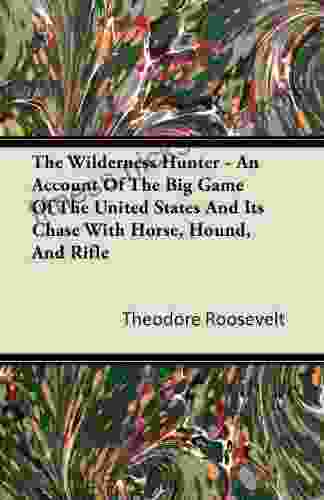
 Anton FosterThe Wilderness Hunter: An Account of the Big Game of the United States and...
Anton FosterThe Wilderness Hunter: An Account of the Big Game of the United States and...
 Ralph Waldo EmersonDead Babies and Seaside Towns: A Tale of Murder, Obsession, and the Fragility...
Ralph Waldo EmersonDead Babies and Seaside Towns: A Tale of Murder, Obsession, and the Fragility...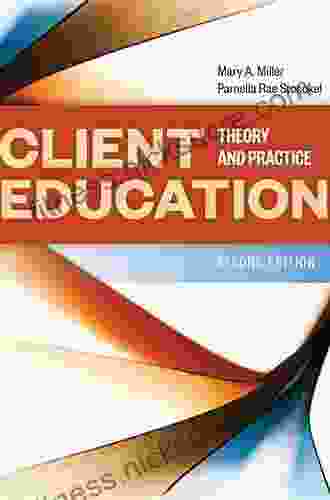
 Edward ReedClient Education Theory and Practice: Empowering Individuals to Manage Their...
Edward ReedClient Education Theory and Practice: Empowering Individuals to Manage Their... Roberto BolañoFollow ·15.4k
Roberto BolañoFollow ·15.4k Joshua ReedFollow ·18.4k
Joshua ReedFollow ·18.4k E.M. ForsterFollow ·9.8k
E.M. ForsterFollow ·9.8k Jay SimmonsFollow ·6.4k
Jay SimmonsFollow ·6.4k Blake KennedyFollow ·8.5k
Blake KennedyFollow ·8.5k Eric NelsonFollow ·5.4k
Eric NelsonFollow ·5.4k Tyrone PowellFollow ·11.2k
Tyrone PowellFollow ·11.2k Hudson HayesFollow ·9k
Hudson HayesFollow ·9k

 Derek Bell
Derek BellReflections For Your Heart and Soul: A Journey of...
In the depths of...

 Joseph Conrad
Joseph ConradThe Heroines Club: Empowering Mothers and Daughters
The Heroines Club...

 Milan Kundera
Milan KunderaThe First Kormak Omnibus: A Literary Expedition into the...
Prepare to embark on an extraordinary literary...
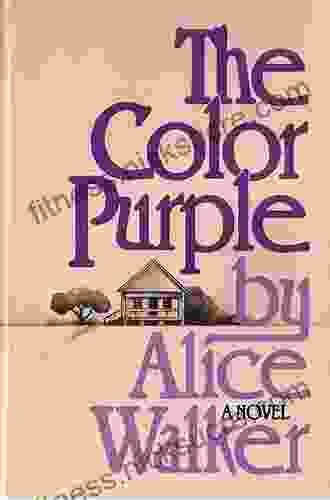
 W.H. Auden
W.H. AudenThe Color Purple: A Journey of Love, Resilience, and...
The Color Purple, a groundbreaking novel...
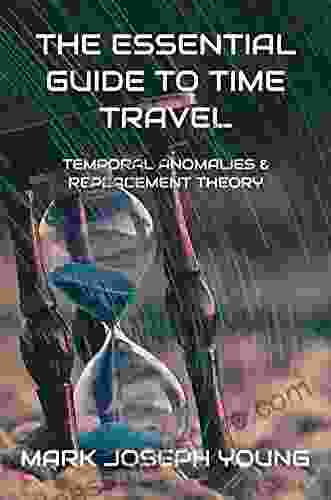
 Harvey Hughes
Harvey HughesTemporal Anomalies and Replacement Theory: Unraveling the...
: The Enigma of Time Time,...
4.9 out of 5
| Language | : | English |
| File size | : | 1222 KB |
| Text-to-Speech | : | Enabled |
| Screen Reader | : | Supported |
| Enhanced typesetting | : | Enabled |
| Word Wise | : | Enabled |
| Print length | : | 396 pages |


